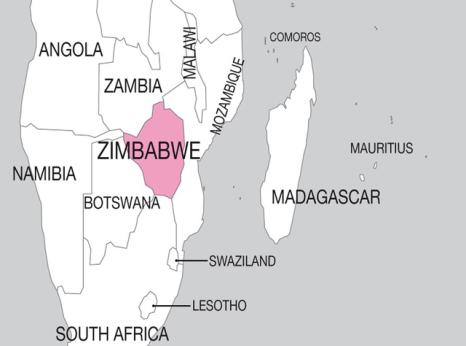Zimbabwe: Draft Law Threatens Existence Of NGOs

On 31 August 2021, the Zimbabwe Government, through its cabinet, approved amendments to the Private Voluntary Amendment Act which were proposed by the Minister of Justice, Legal and Parliamentary Affairs. The proposed changes to the Act were met with widespread scepticism based on the current national context and historical experiences. The country is already in election mode and is heading towards a crucial election in July 2023. The interpretation of the provisions of the proposed PVO bill must be understood in the current context within which it is proposed. Overall, post-election disputes, a collapsing economy and widespread economic hardships caused by poor economic policies and austerity measures have raised tensions in the country. NGOs have been falsely accused of meddling in political affairs and stirring the populace to vote against the ruling party.
On 29 June 2021, the ruling party’s Harare Provincial Development Coordinator issued a directive that NGOs must submit their operational strategies to him for review/approval. He called on the police to arrest all those that refused to comply and threatened to ban NGOs that had not submitted their plans. Civil society came together and challenged the legality of his orders with the High Court ruling in September 2021 that the directive was illegal.
The government has also considered enacting a ‘Patriotic Bill’. A ruling party member of parliament, Hon Pupurai Togarepi of ZANUP PF, who supported the motion for government to develop a Patriotic Bill noted that: " …civic organisations that in their activities deviate from their core business and start advancing activities that destabilise the people of Zimbabwe … people come to this country, they tell us that they are social welfare organisations yet they have political agendas … if you have campaigned against Zimbabwe, the law should actually bar you from getting into any public office because you will have killed the people that you want to look after."
In 2004 an initial attempt was made to regulate NGOs through the 2004 ‘Non-Governmental Organization Bill’. The Bill was passed by Parliament but never signed into law by then President, Robert Mugabe. The NGO Bill was brought about in a similar context. To date the context has not changed as civil society leaders continue to be targeted, accused of tarnishing the image of the state by exposing human rights violations or of representing ‘Western’ interests when they call for the authorities to respect and protect human rights.
The PVO Bill places all civic organisations registered under different laws under one law and the clauses indicate an attempt to control and shut down civil society perceived to be ‘anti-government.’ The bill aims to limit CSOs ability to perform roles that might fundamentally affect the ability of ordinary Zimbabweans to fully participate in the upcoming elections and thus infringe on their constitutionally guaranteed civil and political rights. The Bill contains vague provisions where supporting or opposing a political party or candidate is prohibited, but it is not clear what supporting or opposing a political party means. Civil society organisations, that is, organisations that provide very critical safety nets for political actors in the run up to elections, either through the provision of legal aid or socio-medical assistance, voter education, mobilisation of new entries to the voters’ row, election monitoring and/or observation, are considered ‘political’ under the proposed bill and are worried that their interventions may be misconstrued as support to political parties.
Civil society has presented oral and written submissions, including the ‘CSOs’ Consolidated Analysis of the PVO Bill’, highlighting their concerns to the Parliament Legal Committee, Parliament Portfolio Committee on Public Service. On 11 April 2022 civil society met with the Minister of Justice during a consultative meeting and the Minister addressed parliament agreeing to introduce various amendments. The proposed amendments which the Minister of Public Service, Labour and Social Welfare brought back to Parliament are worse than the first with provisions that introduced additional, excessively punitive, criminal and civil penalties for noncomplying PVOs, as well as individual liability for trustees, employees and managers of PVOs, and anyone involved in the control of a PVO, including members of the public.